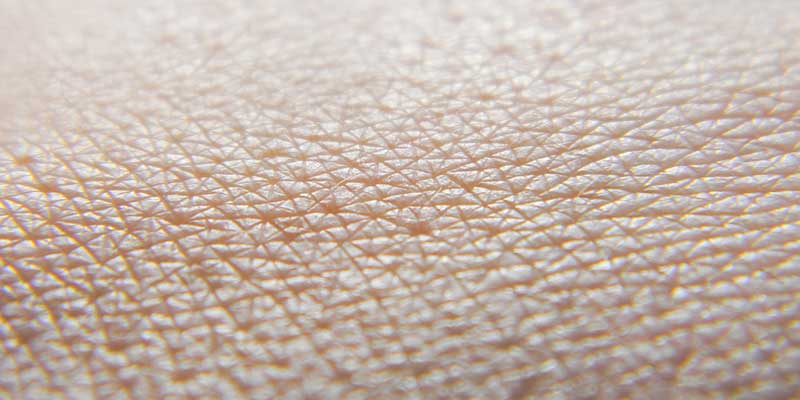Everything You Need to Know about Your Skin’s Microbiome
New research is teaching us how the bacteria that live in our gut and on our skin are affecting our health and appearance. Even though we can’t see everything that’s living on our skin, there is a diverse group of microscopic organisms that inhabit our bodies, both inside and out. For the most part, these microorganisms are completely harmless and often quite helpful when it comes to maintaining a healthy body and skin.
Read on to learn more about the ways in which the friendly bacteria on your skin could help to ward off the potentially harmful microbes, perhaps even the one that may be linked to eczema.
What Is a Microbiome?
“Microbiome” is a fancy way of describing the unique combination of microorganisms that live in any given environment. Therefore, when we talk about the skin’s microbiome, this includes any number of microbe species, including bacteria, fungi, and mites, that coexist on your skin, most of which you never even realize are there.
The exact types of organisms that are present on your skin varies with a number of factors, including the micro environment and the location on the body. Your genes, age, gender, diet, environment, and what skincare products you use on your skin also influence which species are present. Perhaps most importantly, though, you can influence what lives on your skin by making various lifestyle choices, including avoiding sun exposure and washing your hands (Nature Reviews – Microbiology).
Why Not All Bacteria Is Bad
Often the word “bacteria” automatically carries a negative connotation. The reality is that there is a vast range of different bacterial species, and many of them are not only harmless but are actually beneficial to our skin health. In fact, scientists have even begun to formulate topical skincare products to include friendly bacteria in order to generate natural antibiotics and keep other, potentially dangerous, bacteria under control by increasing the skin’s own immune system response (Seattle PI). More needs to eb leanred about which bacteria are good for the skin and which are bad before I can support the use of any of these products.
The Microbiome and Eczema
In particular, researchers studying the positive effects of good bacteria on the skin have found that certain types of beneficial microorganisms are able to secrete a natural antibiotic that has been shown to help fight off staphylococcus aureus and possibly even MRSA without harming the surrounding good bacteria.
Interestingly, however, researchers also found that those with atopic dermatitis, more commonly known as eczema, lack many of these antibiotic microorganisms within their skin (Science Translational Medicine). As a result of these findings, it may be possible to design a specific topical treatment for eczema patients that adds more of these beneficial bacteria to the skin’s natural microbiome, thus potentially helping to significantly improve dryness, flaking, itchiness, and other symptoms. At this point there are no products on the market that are designed to affect the microbiome in eczema patients but they are coming in the near future.
How to Protect Your Skin’s Microbiome
While this exciting new research could point us towards a more effective approach to treating eczema patients, using topical creams that contain healthy bacteria isn’t the only way to promote a balanced microbiome on your skin. Here are a few tips to keep in mind to foster happy, healthy skin:
- Avoid using harsh products like bar soaps and hand sanitizers that can strip away your skin’s natural barrier and negatively affect the microorganisms inhabiting it. Instead choose products such as GCP Pre and Post procedure Cleanser or Element 47 Skin Fortifying Mist to cleanse the skin.
- Eat a healthy, balanced diet and avoid consuming too many refined sugars and processed foods. Published research confirms the effects that your diet can have on your skin and its microbiome, both good and bad (Journal of the American Academy of Dermatology).
- Manage stress in productive ways like meditation, breathing exercises, and spending time outdoors to help keep your skin healthy and balanced (American Academy of Dermatology). This is helpful because chronic stress can change the microenvironment of the skin.
The Bottom Line
Everything that you put on your skin has the potential to change its natural pH and balance of microorganisms living on it, whether for better or for worse. That’s why it’s crucial that you’re using the right products and ingredients for your unique skin type, which can be very different from the best products for someone else.
If you want medical advice on skincare, consider scheduling an appointment with a physician partner in your area who has access to the Baumann Skin Type Questionnaire to diagnose your skin concerns and prescribe a customized skincare regimen to treat your skin’s specific needs.
Dr. Leslie Baumann, M.D. and her team at Baumann Cosmetic Dermatology believe in proof, not promises. World-recognized for both cosmetic and general dermatology, our treatment strategies rely exclusively on evidence-based, scientifically verified products and procedures that promote skin health and a natural appearance. We combine effective medical procedures with individualized instruction on proper skincare, nutrition, supplementation and lifestyle in order to maximize the health of the skin and body as a whole while minimizing the effects of aging. For more, visit Dr. Baumann’s blog for daily updates Monday through Friday, or inquire about an appointment through Derm.net.



